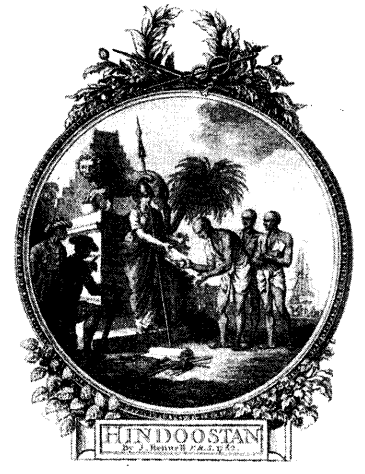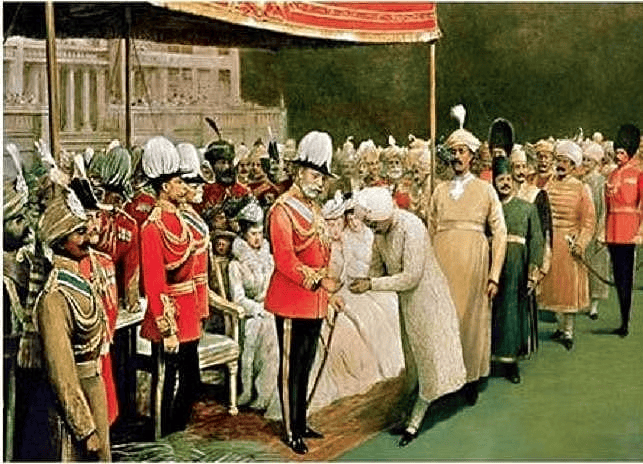How, When & Where Summary Class 8 NCERT Summary Chapter 1
| Table of contents |

|
| How Important are Dates? |

|
| British classification of Indian History |

|
| Another Classification of Indian history |

|
| What is colonial? |

|
| Administration produces records |

|
How Important are Dates?
Earlier, history was synonymous with dates. History is about finding out how things were in the past and how things have changed.
Previously, history was an account of battles and big events such as:
- The year a king was crowned.
- The year he was married and had a child.
- The year he fought a particular war or battle.
- The year he died.
- The year the next ruler succeeded to the throne.
- Now, historians look more towards why and how things happen and not on when things happened.

Which dates?
- The dates we select become vital because we focus on a particular set of events as important.
- If the focus of the study changes, a new set of dates will appear significant.
How do we periodise?
We divide history into different periods in an attempt to capture the characteristics of a time, its central features as they appear to us.
British classification of Indian History
In 1817, James Mill, a Scottish economist and political philosopher, in his book 'A History of British India' divided Indian history into three periods:
- Hindu
- Muslim
- British
According to Mill, all Asian societies were at a lower level of civilisation than Europe.
Another Classification of Indian history
Historians have usually divided Indian history into ‘ancient’, ‘medieval’, and ‘modern’.This division too has its problems.
- This periodization is borrowed from the West where the modern period was associated with the growth of all the forces of modernity – science, reason, democracy, liberty and equality.
- Medieval was a term used to describe a society where these features of modern society did not exist.
Many historians refer British rule period as ‘colonial’ because in this rule:
- People did not have equality, freedom or liberty.
- No economic growth and progress took place
What is colonial?
- The British came to conquer the country and establish their rule, subjugating local nawabs and rajas.
- British established control over the economy and society, collected revenue to meet all their expenses, bought the goods they wanted at low prices, produced crops they needed for export
- British rule brought about values and tastes, customs and practices.
- When the subjugation of one country by another lead to these kinds of political, economic, social and cultural changes, we refer to the process as colonisation.

Administration produces records
- The official records of the British administration are one of the important sources.
- Every instruction, plan, policy decision, agreement, and investigation was written as the British believed that the act of writing was important.
- British setup record rooms attached to all administrative institutions as they felt that all important documents and letters needed to be carefully preserved.
Surveys become important
- The British believed that a country had to be properly known before it could be effectively administered, therefore, practice of surveying became common under the colonial administration.
- By the early nineteenth century, detailed surveys were being carried out to map the entire country.
- In the villages, revenue surveys were conducted to know the topography, the soil quality, the flora, the fauna, the local histories, and the cropping pattern.
- From the end of the nineteenth century, Census operations were held every ten years which provided detailed records of the number of people in all the provinces of India, noting information on castes, religions and occupations.
- Other surveys such as botanical surveys, zoological surveys, archaeological surveys, anthropological surveys, and forest surveys also done.
What official records do not tell
- Official records do not tell what other people in the country felt, and what lay behind their actions.
- We need to look at these things in unofficial records which are more difficult to get than official records.
Sources of Unofficial records:- Diaries of people
- Accounts of pilgrims and travelers
- Autobiographies of important personalities
- Popular booklets in the local bazaars
- Newspapers
- Written ideas of Leaders and reformers
- Written records of poets and novelists.
Limitation of Unofficial records
- They were produced by those who were literate.
- From there, we can't understand how history was experienced and lived by the tribals and the peasants, the workers in the mines, or the poor on the streets.
|
75 videos|322 docs|78 tests
|
FAQs on How, When & Where Summary Class 8 NCERT Summary Chapter 1
| 1. Why are dates important in understanding Indian history? |  |
| 2. What is the British classification of Indian history? |  |
| 3. How does another classification of Indian history differ from the British classification? |  |
| 4. What does the term 'colonial' refer to in the context of Indian history? |  |
| 5. How do administrative records contribute to our understanding of history? |  |
















